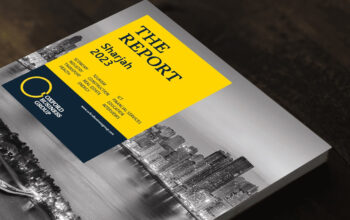Personal finances are contingent upon a variety of factors, including the economy, salaries, spending and saving habits – with each factor contributing to fluctuations in an individuals finances.
Data acquired by Moneyzine.com has revealed that the United States ranks 14th on the global financial freedom list, however, 61% of US consumers are still living pay check to pay check. This data poses the question as to how financially secure US consumers truly are.
A double edged sword – both the volume of US savings and debt is declining
Whilst the average Americans savings was revealed to be $62,086 in 2022, this is a 15% drop from the 2021 figure of $73,100, indicative that consumers ability to save is declining. In fact, 49% of American households with an annual income of less than $30,000 have no emergency savings at all. However, only 13% of their higher earning counterparts earning between $50,000 and $74,999 reported the same. As expected those with higher salaries have more disposable income to spend or save as they wish, with 43% of high earning households citing they have enough money saved to live for 6 months, in comparison to just 13% of low income households which are able to do so.
Whilst Americans are divided by the amount in which they are able to save, the intention of their accumulated savings are similar, with 39% and 31% describe their savings as general and emergency savings, respectively. In contrast, just 7% of Americans are savings with the intention of putting the money towards a college fund – which is an incredibly low amount considering that 14% are saving for holidays.
Although the volume of average of savings saw a decline, the average amount of US consumers debt simultaneously declined by 22% from $29,800 in 2019 to $22,354 in 2022. Whilst debt statistics are showing improvement, there remain some troubling ones too. For example, on average Americans spend 32% of their monthly income paying their debt, 31% have put off significant purchases and 8% have put off both having children and getting married. Whilst 43% of Americans anticipate fully recovering from their debt in the next one to five years, worryingly more than one in ten believe they will not pay off their debt in their lifetime, leaving them to live every day of their lives with debt looming over them.
Retirement is becoming increasingly more expensive
A positive indication of improving personal finances in the US is the increase in retirement savings, with the average amount standing at $98,800, and improvement from the 2020 figure of $87,500. However, the average amount that is believed to be necessary for a comfortable retirement has also shot up from $950,800 in 2020 to to $1,047,200. In fact, more than two in five Americans claim the primary obstacle to reaching financial security in retirement is inflation, which explains the rising target retirement figures.
The pandemic’s impact of personal finances
The pandemic has been a key event influencing personal finances around the globe by significantly changing consumers habits. Whilst 60% of Americans say that Covid-19 was disruptive to their financial management, a larger figure of 73% say they developed better financial habits during this period. More than a third of Americans were able to reduce living costs and spending, 22% were able to pay off their debts and 19% reported increased investment. The ways in which individuals manage their finances were also influenced by the pandemic, with 19% leaning on technology significantly more and a 9% increase from 29% to 38% of people who seek advice from financial advisors.
Financial education in schools needs to be championed
Whilst financial advisors are the most trusted by more that a quarter of the US, 20% report only trusting themselves for financial advice which could be troublesome considering the large volume of debt incurred. To suffice the self dependence when it comes to financial advice, it important that Americans are educated on such topics. In fact 88% are in agreement that financial education should be mandatory in high school. However, present more than two fifths of teenagers are unhappy with the lack of financial literacy classes in school, suggestive that more attention must be bought to this issue to ensure ample education and classes are available to teach life long financial skills.














